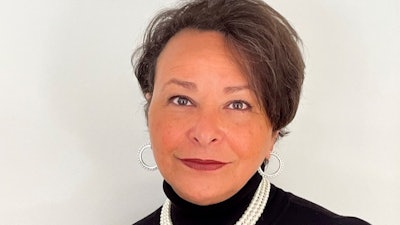Diversity proponents are countering a narrative expressed during a recent House Committee on Education and the Workforce subcommittee hearing, titled “Divisive, Excessive, Ineffective: The Real Impact of DEI on College Campuses.”
 Paulette Granberry Russell
Paulette Granberry Russell
Congressman Burgess Owens of Utah’s Fourth District chairs the Subcommittee on Higher Education and Workforce Development. Owens — who has previously introduced related legislation, including H.R. 3724, to prohibit so-called “political litmus tests” such as requiring adherence to DEI standards as a condition of accreditation for higher education institutions — criticized DEI practices in a Feb. 29 statement, ahead of the hearing.
“Growing up in segregation, bathrooms, water fountains, and schools were separate,” said Owens. “While America has made significant strides, it’s appalling to see blatant discrimination, indoctrination, and divisiveness encouraged and funded in classrooms. We cannot let DEI sabotage our country’s fundamental values of hard work and meritocracy, teaching our children that it’s acceptable to judge each other based on race or sex.”
Jin Hee Lee, the strategic initiatives director at the Legal Defense Fund, noted that the organization has been monitoring the issue nationally and leading campaigns to defend against attacks on DEI.
“As a nation, we cannot afford to forgo the benefits and contributions of talented Black, Latinx, Indigenous, and other underrepresented students,” she said in a statement following the hearing. “Moreover, our national security, our ability to compete in a global economy and in scientific and technological innovation, and the health of our multi-racial democracy depend on producing informed leaders and a well-trained workforce who are capable of navigating and thriving in a racially diverse society.”
Granberry Russell said the hearing illustrated opponents of diversity on college campuses have no interest in the success of all students. NADOHE officials will gather in Seattle this week for their annual meeting.
“Instead, they seek to malign our successes and characterize them as ‘promoting hate,’ inflaming ‘racial tension,’ and driving a wedge between communities by their manufactured ‘culture wars,’” said Granberry Russell, adding her belief that DEI opponents want to capitalize on fear and resentment in order to dismantle decades of progress to support students from historically marginalized and underrepresented communities.
“Let’s be clear on what diversity, equity, and inclusion mean,” she continued. “As noted by one of the House representatives who spoke in support of our work, ‘DEI initiatives strengthen students, not divide them.’ The terms to describe the work may vary, as do the approaches, but the underlying purpose and goal endures: diversity, equity, and inclusion work addresses student needs to support student success.”















